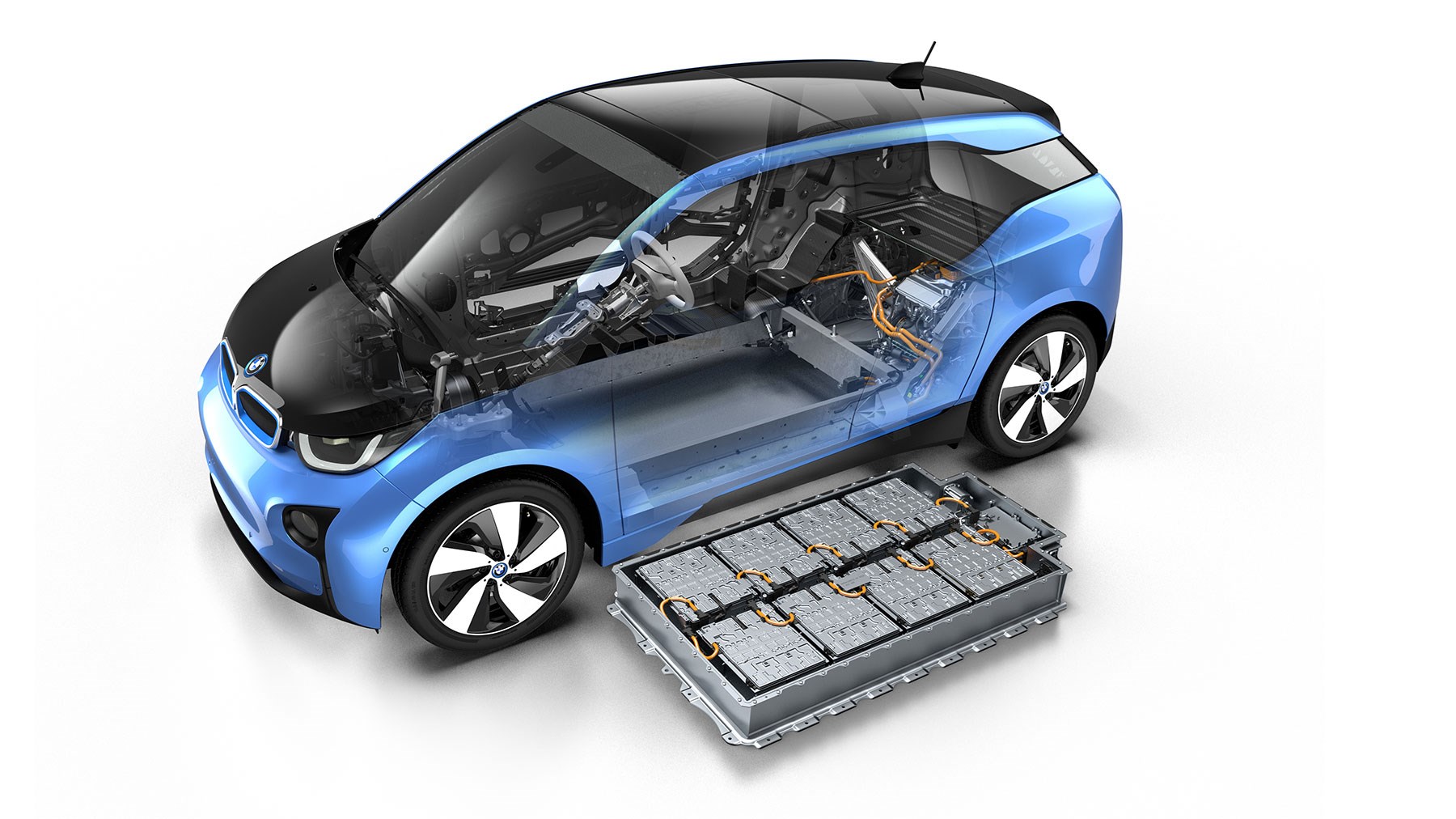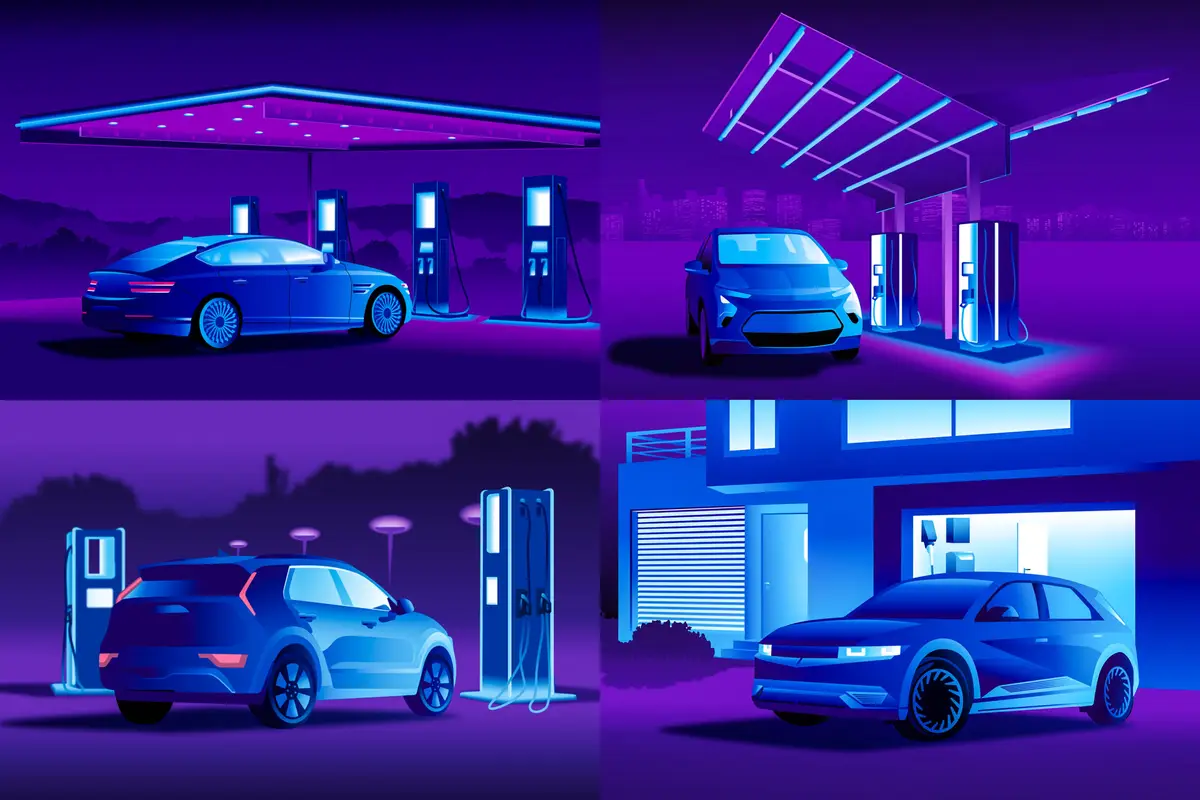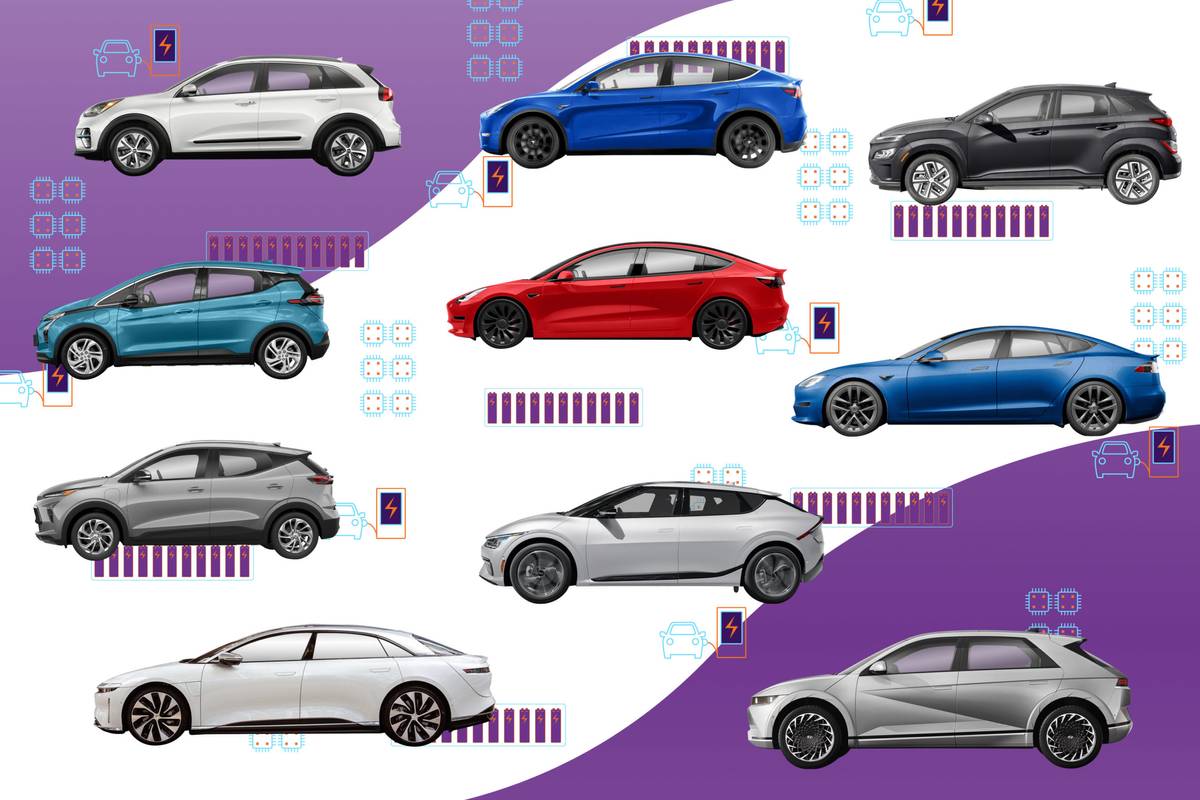Introduction to Electric Cars

Electric cars, also known as electric vehicles (EVs), are automobiles powered by electricity instead of gasoline or diesel. They utilize electric motors and rechargeable batteries to propel the vehicle. Electric cars have gained popularity due to their environmentally friendly nature and potential cost savings on fuel and maintenance. They offer a cleaner and more sustainable alternative to traditional combustion engine vehicles.
A What are Electric Cars?

Electric cars, also known as electric vehicles (EVs), are automobiles powered by electricity instead of gasoline or diesel. They utilize electric motors and rechargeable batteries to propel the vehicle. Electric cars have gained popularity due to their environmentally friendly nature and potential cost savings on fuel and maintenance. They offer a cleaner and more sustainable alternative to traditional combustion engine vehicles.
B Benefits of Electric Cars

Electric cars offer several benefits compared to traditional combustion engine vehicles. Some of the key advantages include:
- Environmental friendliness: Electric cars produce zero tailpipe emissions, reducing air pollution and greenhouse gas emissions.
- Cost savings: Electric cars have lower running costs as electricity is generally cheaper than gasoline or diesel. They also require less maintenance due to fewer moving parts.
- Energy efficiency: Electric motors are more efficient than combustion engines, converting more energy from the battery into forward motion.
- Reduced dependence on fossil fuels: Electric cars can help reduce dependence on imported oil and increase energy independence.
- Quiet and smooth operation: Electric motors provide a quiet and smooth driving experience, with instant torque and responsive acceleration.
With these benefits, electric cars are becoming a preferred choice for environmentally conscious consumers looking for cost-effective and efficient transportation options.
How Electric Cars Work

Electric cars work by using an electric motor to propel the vehicle. The motor is powered by a battery that stores electricity. When the driver presses the accelerator, electricity is sent from the battery to the motor, which generates rotational force. This force is then transferred to the wheels, allowing the car to move forward. The battery is recharged by plugging the car into a charging station or using regenerative braking to capture energy from braking and coasting. Electric cars also have onboard computers that manage the flow of electricity and control various systems in the vehicle. Overall, electric cars provide a cleaner and more efficient alternative to traditional combustion engine vehicles.
A Electric Motors

Electric motors are a crucial component of electric cars. They use electromagnetic fields to convert electrical energy into mechanical power, propelling the vehicle forward. Electric motors offer several advantages, including high torque at low speeds, efficient energy conversion, and smooth acceleration. They also require less maintenance compared to internal combustion engines, making them a reliable and durable choice for electric vehicles.
B Batteries and Charging

Batteries are a crucial component of electric cars, providing the energy needed to power the vehicle. These batteries are typically lithium-ion batteries, which offer high energy density and long-lasting performance. Charging an electric car can be done at home using a standard electrical outlet, or at public charging stations that offer faster charging speeds. The availability of charging infrastructure is an important factor to consider when owning an electric car.
Types of Electric Cars

Electric cars come in different types to cater to various needs and preferences. Battery Electric Vehicles (BEVs) are fully electric and rely solely on battery power. They offer zero-emissions and longer driving ranges. On the other hand, Plug-In Hybrid Electric Vehicles (PHEVs) combine electric motors with traditional combustion engines, allowing for both electric and gasoline-powered driving. These options provide flexibility and address concerns regarding range anxiety.
A Battery Electric Vehicles (BEVs)

A Battery Electric Vehicles (BEVs) are fully electric cars that rely solely on battery power. They offer zero-emissions and have longer driving ranges compared to other electric car types. BEVs are powered by an electric motor and must be recharged by plugging into an electric power source. They are a sustainable and environmentally-friendly option for those looking to reduce their carbon footprint and dependence on fossil fuels.
B Plug-In Hybrid Electric Vehicles (PHEVs)

Plug-In Hybrid Electric Vehicles (PHEVs) are a type of electric car that combines both an electric motor and an internal combustion engine. They can switch between electric mode and hybrid mode, depending on driving conditions. PHEVs have a limited electric driving range and can be charged by plugging into an electric power source. They offer the flexibility of using both electricity and gasoline, providing a longer overall driving range compared to BEVs.
Popular Electric Car Models

There are several popular electric car models available in the market today. One notable model is the Tesla Model S, known for its impressive range and high performance. Another popular option is the Nissan Leaf, which offers a more affordable and practical choice for daily commuting. These models, along with other brands like Chevrolet, BMW, and Volkswagen, offer a range of electric cars to suit different budgets and preferences.
A Tesla Model S

The Tesla Model S is one of the most popular electric car models on the market. It is known for its impressive range, with some models able to travel up to 400 miles on a single charge. The Model S offers incredible acceleration and sleek design, making it a favorite among luxury car enthusiasts. With its advanced autopilot features and over-the-air software updates, the Model S represents the cutting edge of electric car technology.
B Nissan Leaf

The Nissan Leaf is one of the best-selling electric car models globally, known for its affordability and practicality. With a range of up to 226 miles, it offers a comfortable driving experience and a spacious interior. The Leaf also features advanced safety technology and a user-friendly infotainment system. Its popularity is a testament to the growing demand for electric vehicles in the market.
Pros and Cons of Electric Cars

Electric cars have several advantages that make them appealing to consumers. They offer lower emissions and reduced environmental impact compared to traditional gasoline vehicles. Additionally, electric cars are cheaper to run and maintain, with lower fuel and maintenance costs. However, there are also some challenges and limitations. Electric cars have limited range compared to gasoline vehicles, and charging infrastructure is still developing. The initial cost of electric cars can be higher, although there are government incentives available. Overall, electric cars offer promising benefits, but there are still some considerations to keep in mind.
A Advantages of Electric Cars

Electric cars offer numerous advantages compared to traditional gasoline vehicles. They have lower emissions, helping to reduce air pollution and combat climate change. Electric cars also have lower operating costs, as they require less maintenance and have lower fuel costs. Additionally, they provide a quieter and smoother driving experience, and can be powered by renewable energy sources, further reducing their environmental impact. Electric cars are also eligible for government incentives and tax credits, making them more affordable for consumers. Overall, electric cars offer a more sustainable and cost-effective transportation option.
B Challenges and Limitations of Electric Cars

While electric cars offer numerous benefits, they also face several challenges and limitations. One major limitation is their limited driving range, which can cause range anxiety for drivers. Additionally, the charging infrastructure is not as developed as traditional refueling stations, making it more difficult to find charging points. The initial cost of purchasing an electric car is also higher compared to gasoline vehicles. Finally, the production and disposal of batteries used in electric cars can have environmental impacts.
The Future of Electric Cars
/posttv-thumbnails-prod.s3.amazonaws.com/04-10-2023/t_da8e5b8f49f741ec9b38f684c1f85301_name_evquestions_scaled.jpg)
The future of electric cars looks promising as governments around the world are implementing initiatives and policies to promote their adoption. Advancements in technology and infrastructure are also making electric cars more accessible and convenient for consumers. With the development of faster-charging solutions and improvements in battery technology, electric cars are expected to have even longer driving ranges and shorter charging times. As more countries commit to reducing carbon emissions, electric cars are likely to play a significant role in the future of transportation.
A Government Initiatives and Policies
Various governments around the world are taking significant steps to promote the adoption of electric cars. They are implementing initiatives and policies such as tax incentives, grants, and subsidies to encourage consumers to switch to electric vehicles. Additionally, some governments are investing in the development of charging infrastructure and establishing regulations to reduce carbon emissions from conventional vehicles. These initiatives are essential in creating a supportive environment for the growth of electric cars in the future.
B Advancements in Technology and Infrastructure
Advancements in technology and infrastructure are playing a crucial role in the growth and development of electric cars. Technological innovations such as improved battery technology, faster charging options, and increased driving range are making electric cars more practical and convenient for consumers. Additionally, the expansion of charging infrastructure, including the installation of public charging stations and the development of wireless charging technology, is addressing the issue of range anxiety and making it easier for electric vehicle owners to recharge their vehicles. These advancements are making electric cars a more viable option for everyday use and are contributing to their increasing popularity in the automotive market.
No comments:
Post a Comment